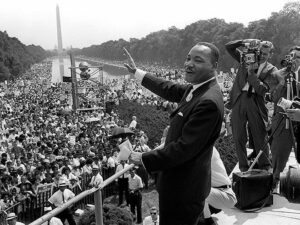Juneteenth: A Celebration of Freedom and Resilience
Juneteenth, also known as Freedom Day, Emancipation Day, or Juneteenth Independence Day, is a holiday commemorating the emancipation of enslaved African Americans in the United States. Americans celebrate it each year on June 19. It marks the date in 1865 when Union soldiers arrived in Galveston, Texas and announced the end of the Civil War and the freedom of all enslaved people in the state. This happened more than two years after President Abraham Lincoln’s Emancipation Proclamation had officially outlawed slavery in Confederate territories.
The Historical Origins of Juneteenth
The Emancipation Proclamation, issued on January 1, 1863, declared that all enslaved people in Confederate states were to be freed. However, enforcement of this decree depended on the advance of Union troops. Texas, the most remote of the slave-holding states, had seen relatively little combat and was slow to receive Union presence. Only on June 19, 1865, did Major General Gordon Granger and his troops arrive in Galveston to issue General Order No. 3. Freedom only arrived in Texas at that late date, brought by force by the Union army. The order stated:
“The people of Texas are informed that, in accordance with a proclamation from the Executive of the United States, all slaves are free.”
This moment marked the effective end of slavery in the United States. However, legal and social struggles have persisted for generations.
The Evolution of Juneteenth as a Holiday
The first Juneteenth celebrations began in 1866, as newly freed African Americans in Texas organized gatherings of remembrance, prayer, and jubilation. Over the decades, Juneteenth spread to other states through migration and the formation of Black communities. The celebrations typically included picnics, music, barbecues, parades, church services, and historical readings. The central themes of all such celebrations were freedom, education, and progress.
In the 20th century, interest in Juneteenth waned during the early civil rights era. But it saw a resurgence in the 1970s, spurred by Black cultural pride and political activism. Texas officially recognized Juneteenth as a state holiday in 1980, the first state to do so. Over time, many other states followed.
Much more recently, the year 2020 saw widespread racial justice protests in response to police brutality, believe by many Americans to target African Americans. This has led to a growing national awareness of systemic racism and the recognition that the struggle for “a more perfect union” is far from over. In 2021, President Joe Biden signed legislation making Juneteenth a federal holiday. This was the first new federal holiday since Martin Luther King Jr. Day was established in 1983.
How Juneteenth Is Celebrated
Today, Juneteenth is celebrated across the United States in a variety of ways. Common traditions include:
- Public celebrations with parades, live music, and performances, often highlighting African American culture, heritage, and achievements.
- Educational events like panel discussions, historical reenactments, and museum exhibitions focused on slavery, emancipation, and Black history.
- Community gatherings, including cookouts and family reunions, where red foods such as red velvet cake, strawberries, and hibiscus drinks are served—symbolizing strength, resilience, and ancestral ties to West Africa.
- Moments of reflection and action, including voter registration drives, community service, and advocacy for racial equity and justice.
Cultural Significance of Juneteenth
Juneteenth stands as a powerful reminder that freedom was delayed for many Americans, and in fact it had to be brought by force. This serves as a reminder that justice requires constant vigilance. Juneteenth is a day to remind Americans of this, and to honor the resilience, resistance, and contributions of African Americans throughout U.S. history. While Independence Day (July 4) celebrates the founding of the nation, Juneteenth commemorates a more complete realization of the American ideal of liberty.
Juneteenth continues to gain broader recognition, but at the same time it holds a mirror to the United States that not all Americans are willing to look into. So, Juneteenth is a celebration of emancipation, a call to remember the past, and a celebration of progress. It is also a reminder that the work is not done, and that all Americans must build a future of true equality together.
“None are free until all are free.”
Juneteenth echoes this truth—and invites all Americans to reflect on what freedom truly means.
Get on the road to better English with the Language Garage!
We hope you’ve enjoyed learning about Juneteenth. If you’d like to learn more:
- Follow us on Facebook, LinkedIn, BlueSky, Twitter, Threads, Mastodon, Instagram, or Pinterest. We publish lots of English vocabulary, grammar, and culture notes, so it’s a great way to pick up some new vocabulary and practice.
- Check out our other posts on English language, culture, and more.
- Enroll in affordable, flexible, and personalized private online English lessons or sign up for a small group online English class.
- Create a free Language Garage account to access tons of English vocabulary, grammar, and culture.
Image Source Wikimedia Commons






